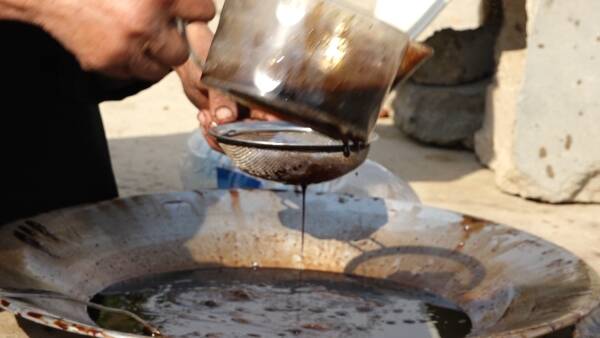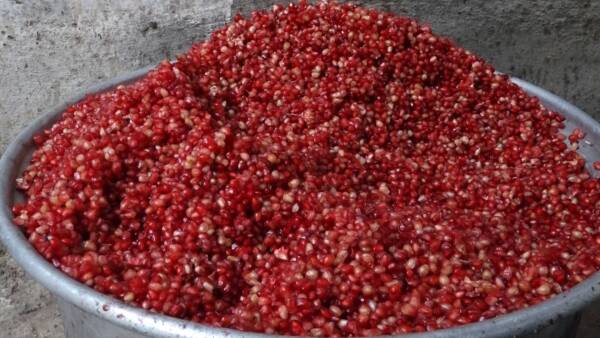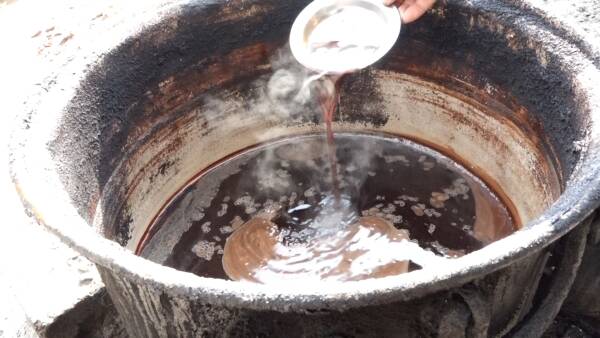Pomegranate molasses: A heritage renewed every autumn in Al-Susah
With autumn in eastern Deir ez-Zor, North and East Syria, the ancient household craft of making pomegranate molasses resurfaces—a tradition carefully preserved by families across generations, sustaining heritage and identity

Zainab Khalif
Deir ez-Zor — In the autumn season in the town of Al-Susah, pomegranate orchards and family homes turn into bustling workshops. Traditional preparation methods and old tools that shaped the history of this popular product come back to life, making the molasses season an integral part of the region’s social and economic identity.
As the pomegranate harvest begins in Al-Susah, homes transform into heritage workshops where women rekindle the story of molasses making. With a wooden stick gently striking the fruit, hands separating the seeds to extract their rich juice, and large pots boiling over wood fire for long hours—every step is carried out with care to achieve the perfect blend.

During this time of year, Al-Susah witnesses the peak of pomegranate molasses and juice production. It is a traditional craft that still holds a strong presence, serving as an important economic resource for families and a cherished social heritage linked to the pomegranate harvest season for decades.

A social and cultural ritual connecting past and present
Hamda Al-Ali, one of the women of Al-Susah, explains that molasses making begins in October, when cracked or highly acidic pomegranates are collected and taken home to start the traditional production process passed down through generations—mostly relying on simple tools such as wooden sticks and metal pots.
The first step is cutting and manually separating the pomegranates: the fruit is tapped with a small wooden stick to release the seeds into wide bowls. The white membranes are removed to preserve the pure taste. The juice is then extracted traditionally by mashing the seeds with a wooden stick inside a large sieve, and the liquid is strained using cloth or gauze to obtain a clear, impurity-free juice.
After collecting the juice, it is poured into large aluminum pots placed over wood fire for several hours. The mixture is continuously stirred with a long wooden stick to prevent burning. According to Hamda Al-Ali, the boiling stage lasts between six and eight hours, during which the women of the household take turns monitoring the pot.
The molasses then goes through a second concentration stage by being exposed to sunlight in wide trays for an entire day—a step that gives it its thick texture and well-known traditional flavor.

After solar evaporation, the molasses is strained again, then stored in glass jars or clean flour sacks for household use or sale. Hamda emphasizes that this craft uses no sugar or additives whatsoever, which preserves its natural quality.
Nothing goes to waste: leftover seeds are used as animal feed, while the remaining liquid is incorporated into some traditional dishes.
Pomegranate molasses is used in many popular foods such as stuffed grape leaves, kebab, and falafel, making it highly demanded in the local markets. Its sales provide a primary income source for many women in Al-Susah.
Residents of Al-Susah affirm that preserving this craft is not just a culinary tradition but a social and cultural ritual that connects past and present, reflecting the resilience of rural families and their commitment to their heritage despite the changes the region has witnessed
